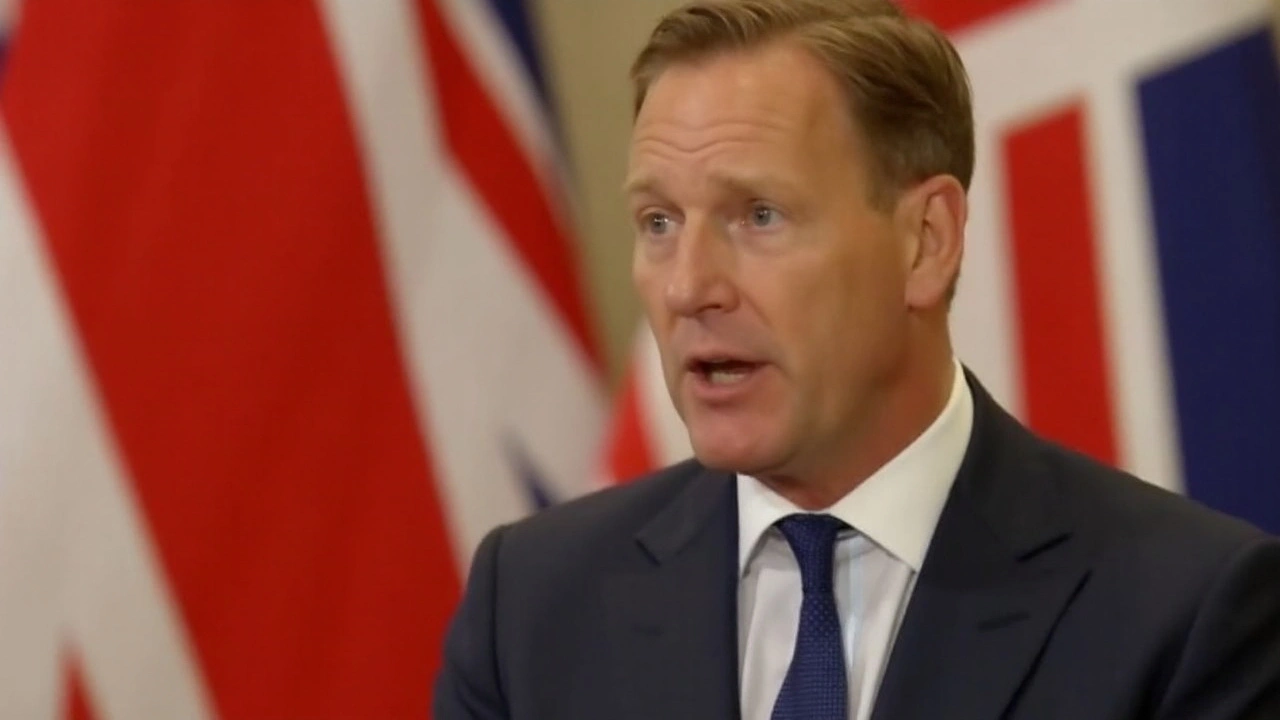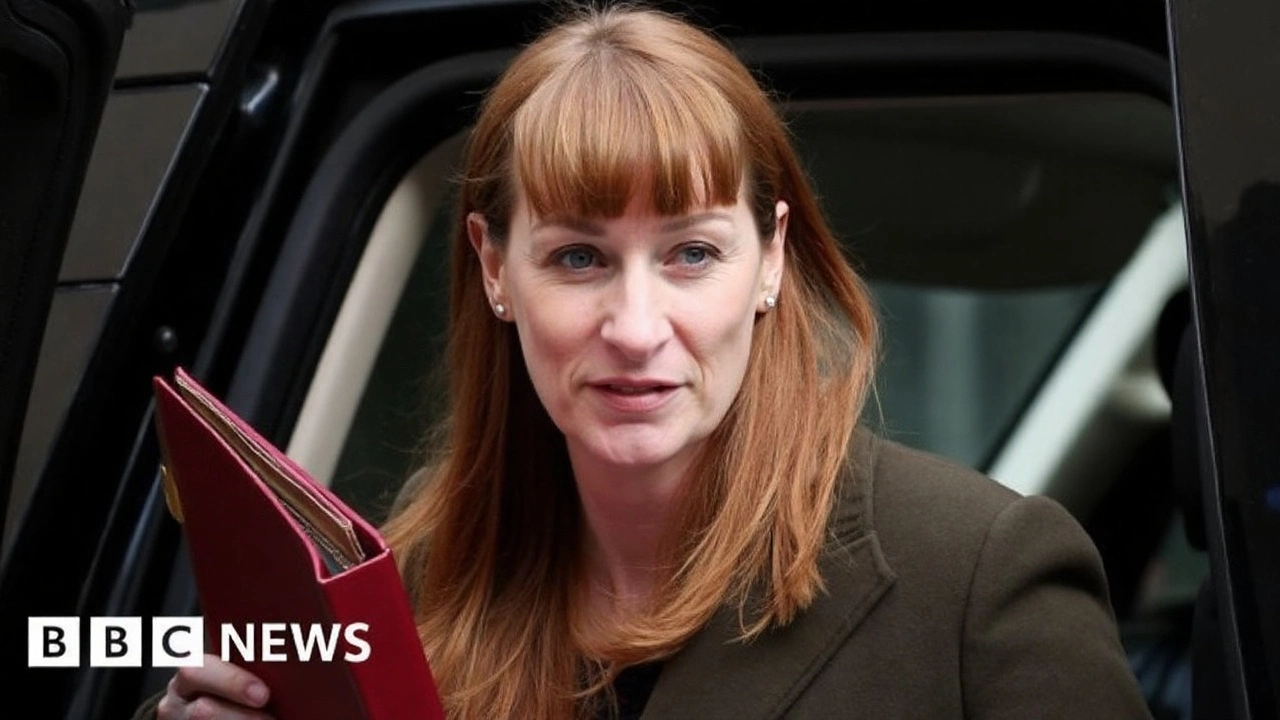Deputy PM steps down after ethics probe into Hove purchase
Angela Rayner has quit as the UK’s deputy prime minister after an independent inquiry found she failed to meet the ethical bar expected of ministers over a tax shortfall tied to her recent flat purchase in Hove. The case turns on stamp duty — the levy due on property deals in England — and a complicated chain of transactions involving a trust set up for her disabled son. Reports say the underpayment was around £40,000.
Rayner admitted on Wednesday that she had paid the wrong amount of stamp duty on the coastal apartment near Brighton, saying she relied on legal advice that later proved incorrect. Less than 48 hours after she referred herself to the independent adviser on ministerial standards, Laurie Magnus delivered his report to Prime Minister Keir Starmer. By Friday, Rayner had resigned, saying the mistake was hers to own, even though the inquiry acknowledged she acted in good faith.
Her exit lands hard for a Labour government still in its first year and deep into a push on housing policy — a brief Rayner helped lead. It also hands ammunition to opponents who have accused Labour figures of preaching tough talk on tax while falling short in their own affairs. Starmer called the decision the right one but said he was “very sad” to see her go, praising her record and writing that he had “nothing but admiration” for her and “huge respect for her achievements in politics.”

What the inquiry found and why it matters
Magnus’s role is to advise on whether ministers live up to the standards set out in the ministerial code. Those standards are about integrity and judgment as much as they are about rule-following. In this case, the inquiry found that Rayner did not seek sufficiently specific tax advice for a complex deal and therefore fell below the ethical threshold, even without intent to mislead or gain. That distinction matters: the report did not accuse her of deliberate wrongdoing, but it still judged her conduct wanting for someone in high office.
Rayner’s resignation letter echoed that logic. She said she took responsibility for not getting the specialist advice the circumstances demanded and accepted the conclusions. In practice, standard ministerial practice is to correct the public record fast, cooperate with inquiries, and remove any perception that a minister used their position for personal benefit. By stepping down, she tried to protect the government’s credibility on standards — a theme Starmer campaigned on after years of Tory-era sleaze headlines.
The political risk was bigger because of who Rayner is and what she has argued for. She has long been one of Labour’s plain-speaking figures on fairness in tax, and has been quick to attack those who underpay or play fast and loose with the rules. When that figure falls short, even by mistake, the charge of hypocrisy sticks faster. Ministers know that in the court of public opinion, an avoidable misstep on personal finances can undo months of policy work.
Starmer’s response tried to keep both lines steady: uphold standards without trashing a colleague. He accepted the resignation and praised her service in a handwritten note, signing off “with real sadness.” But the message was also clear about the bar he expects in government. After years of promising “clean hands” politics, he can’t afford to look like he’s cutting corners for his own team.
At the time of writing, No. 10 had not confirmed who will take over Rayner’s duties. Expect a swift appointment to steady the housing agenda and daily parliamentary business. The government can’t leave the deputy PM’s responsibilities floating while major bills and budget planning deadlines loom.

How a trust and stamp duty rules collided
The stamp duty rules are fiddly at the best of times. Rates rise with the price of the property, and there’s often a 3% surcharge if you’re buying an additional home. Trusts add even more layers. Depending on the type of trust and who benefits, HMRC can treat a purchase or sale differently than a straightforward owner-occupier transaction. That’s where Rayner’s case got tangled.
Here’s the sequence she set out. In 2020, her disabled son received a financial award, and a trust was created to manage it in his interests. After her divorce in 2023, part of the family home’s interest was transferred to that trust. In January 2025, Rayner sold her remaining stake in the family home to her son’s trust. She then used the proceeds — what she called her life savings — as the deposit for the Hove flat.
Rayner said she paid what she believed to be the standard stamp duty on the Hove purchase, based on professional advice. Later, she was told that advice was wrong and that the higher rate should have applied because of how the trust sale and the new purchase interacted under the rules. That mismatch is what generated the estimated £40,000 shortfall.
When trusts are involved, HMRC can treat a disposal or acquisition in ways that don’t align with everyday “sell one home, buy another” reliefs. For example, the extra 3% higher rates for additional dwellings can kick in when a person is seen as still having an interest in another property or when the replacement-of-main-residence carveouts don’t apply in the usual way. Specialist advice is not just helpful; it’s essential.
Two other points often trip people up. First, transactions can be “linked,” meaning HMRC looks at them together when deciding the rate. Second, the definition of a “main residence” is not just where you sleep most nights; it hinges on a pattern of occupation and intention, with evidence. In complex family and trust setups, those lines blur quickly. Rayner’s case is a live example of how an error can snowball when those lines are misread.
So what happens next on the tax front? HMRC normally seeks the difference between the duty paid and the duty owed, plus interest, and sometimes a penalty if they think the taxpayer did not take reasonable care. The inquiry’s finding that she acted in good faith could matter if HMRC assesses any penalty. But the core bill — the underpaid duty and interest — would still need to be settled.
Hove’s property market also matters here. It’s a high-demand coastal area where prices have surged over the past decade. A meaningful underpayment implies a purchase price in a range where every percentage point adds up fast. That, more than anything, explains why the gap ran to tens of thousands of pounds.
Rayner’s opponents have already drawn a straight line from her role in housing to the stamp duty lapse. Supporters counter that she disclosed the issue, referred herself for scrutiny, and accepted the outcome within days. Both points are true. The political question is which one voters remember: the swift accountability, or the original mistake.
For Labour, the immediate task is managing continuity. Rayner has been central to the housing brief — driving pledges on new supply, planning reform, and renters’ protections. Those files do not pause because a minister does. Civil servants will keep the machine running, but ministers make the calls on pace and risk. Expect the next appointee to signal quickly that the housing timetable stays on track.
For Westminster watchers, the episode is a reminder of how personal financial matters can topple a senior figure — even without criminal allegations or findings of intent. The ministerial code weighs the appearance of propriety as heavily as the facts. Once an inquiry says a minister fell short on judgment, resignation pressure becomes hard to resist.
Key dates in brief:
- 2020: Financial award for Rayner’s disabled son; a trust is created to manage it.
- 2023: After Rayner’s divorce, part of the family home’s interest is transferred to the trust.
- January 2025: Rayner sells her remaining stake in the family home to the trust.
- Early 2025: She buys a flat in Hove and pays stamp duty she believed was correct.
- Wednesday: Rayner acknowledges an underpayment and refers herself to the standards adviser.
- Friday: Laurie Magnus delivers his report; Rayner resigns.
There’s a broader policy lesson tucked inside all this. The UK’s property tax system has accreted bolt-on rules — surcharges, reliefs, and trust treatments — that even professionals debate. Most people will never deal with a trust, but plenty confront the 3% surcharge or the replacement-of-main-residence rules when they move. Complexity increases the odds of honest mistakes. And when the taxpayer is a senior minister, the consequences are not just financial; they are political.
Rayner’s future is now a political choice. She remains a high-profile Labour figure with a base in the party and in the country. Resignations in British politics are not always endings; sometimes they are pauses. For now, though, the government has a gap to fill, a housing plan to defend, and a promise on standards to keep — exactly the terrain on which this storm gathered in the first place.
